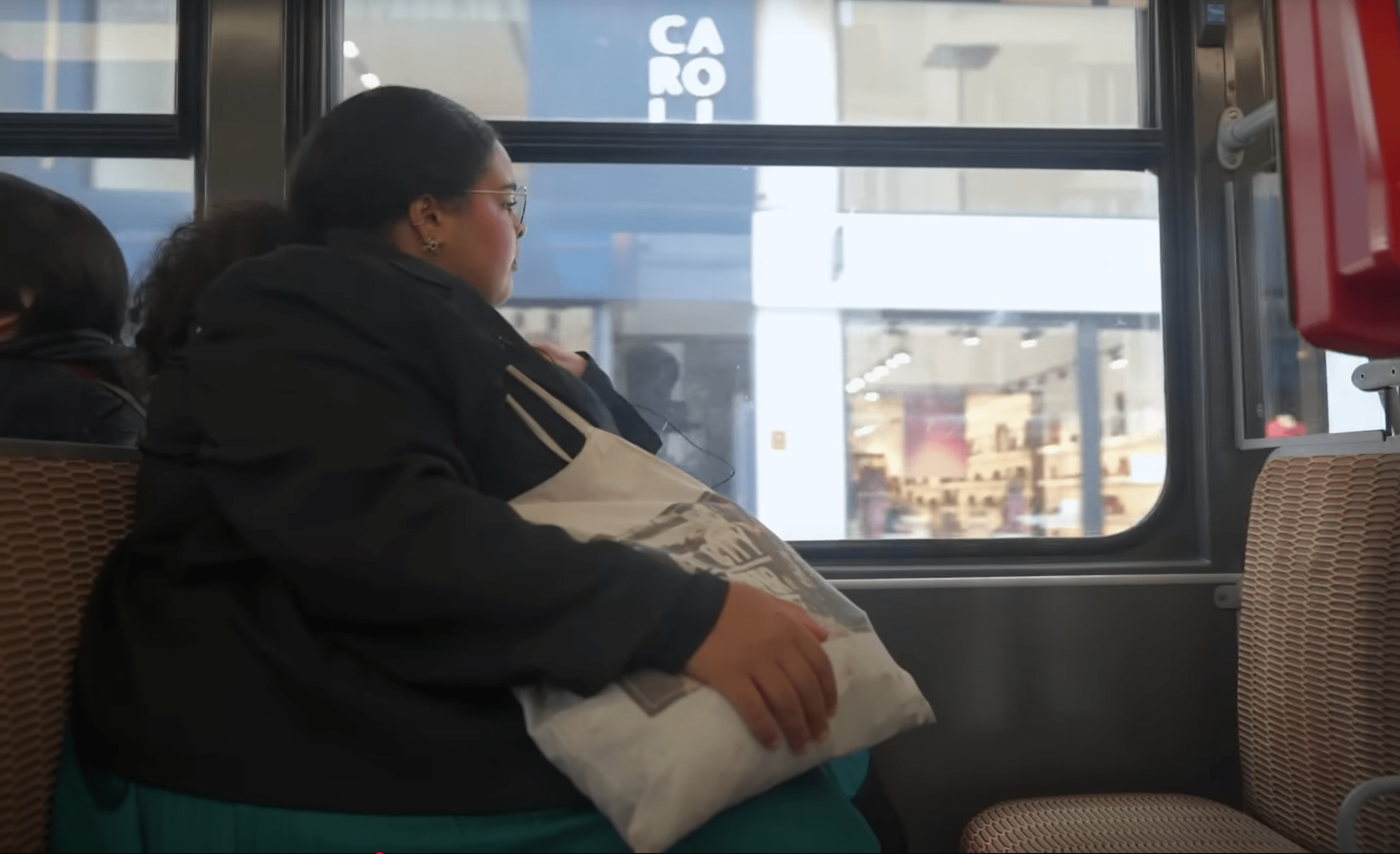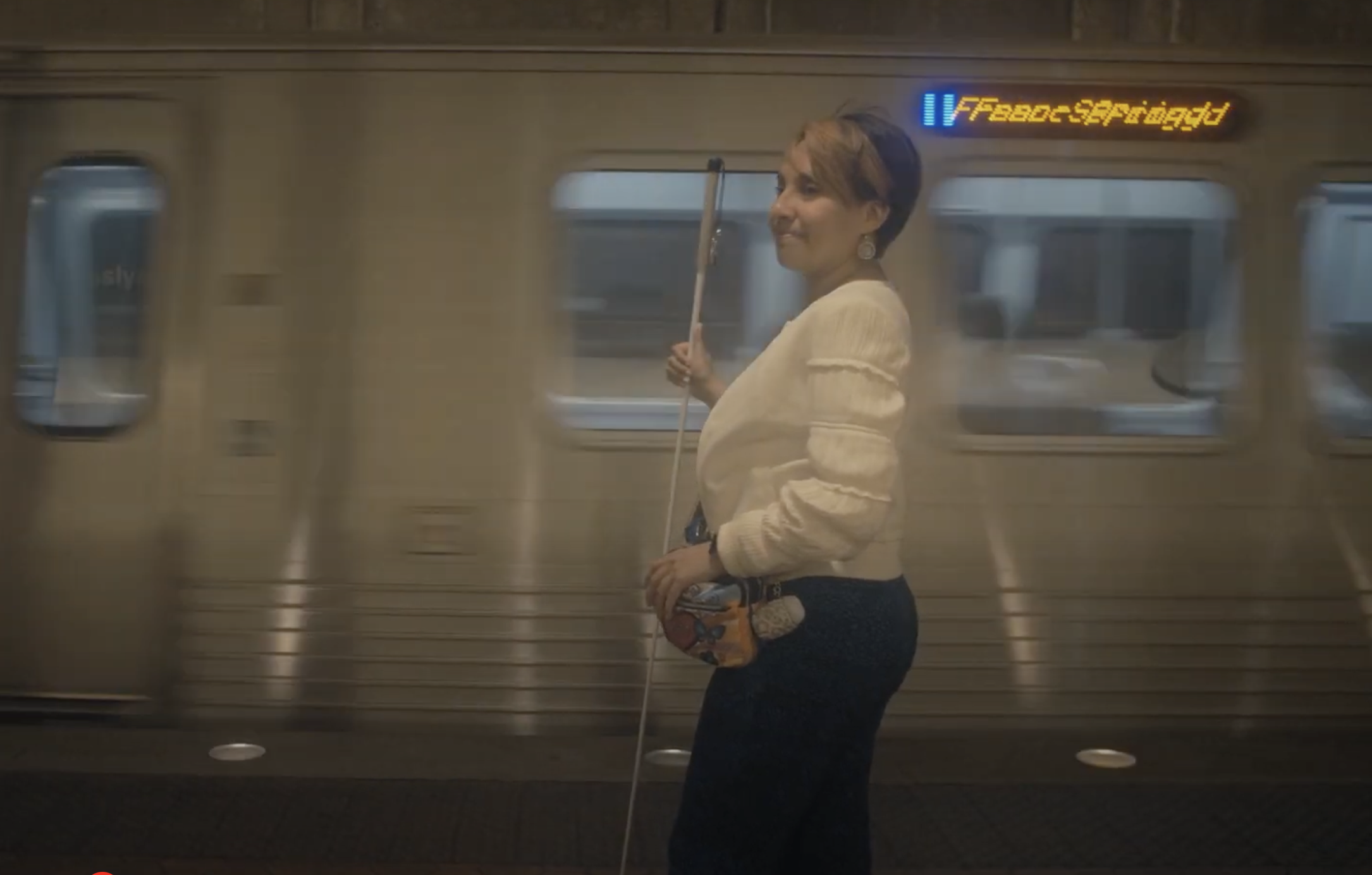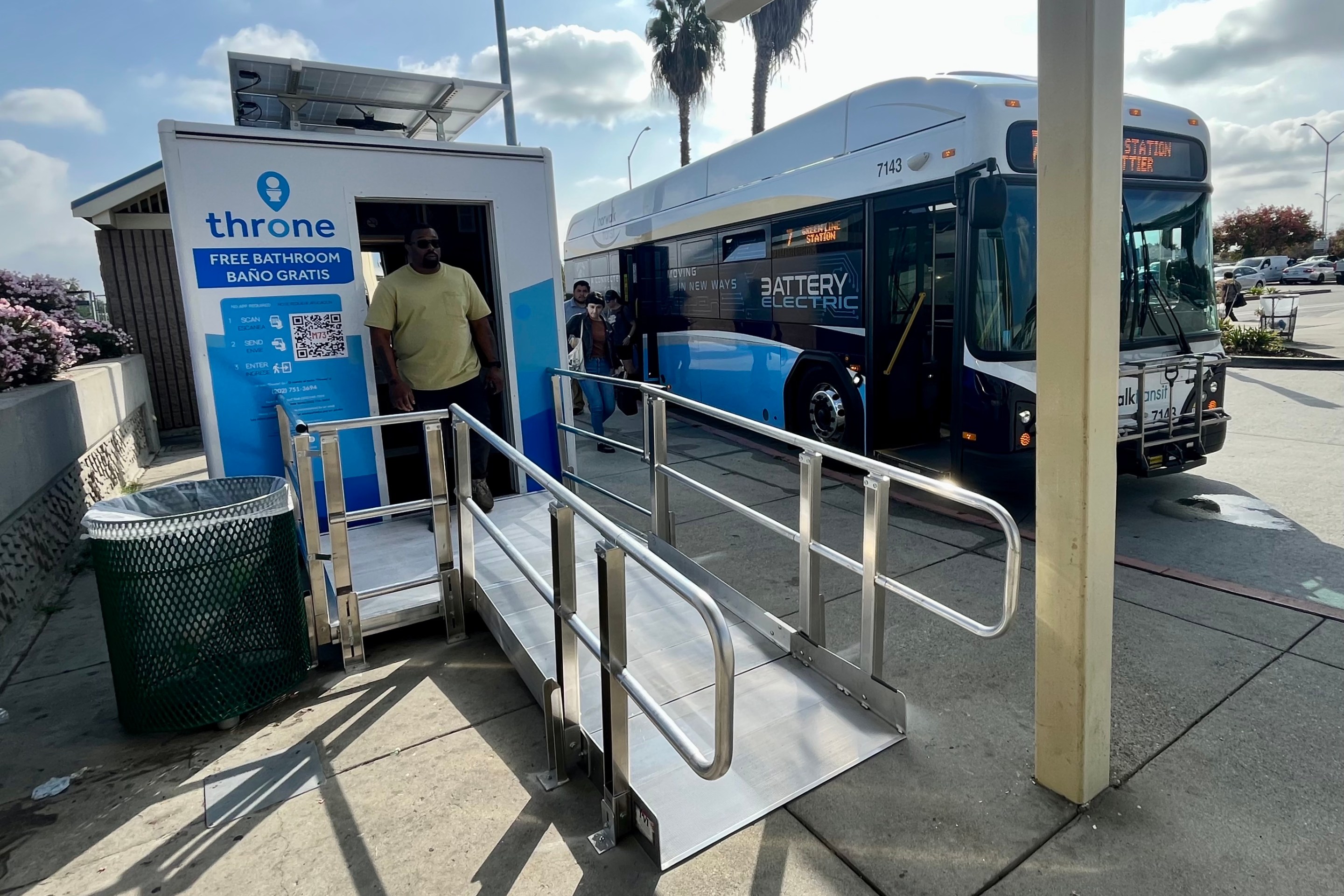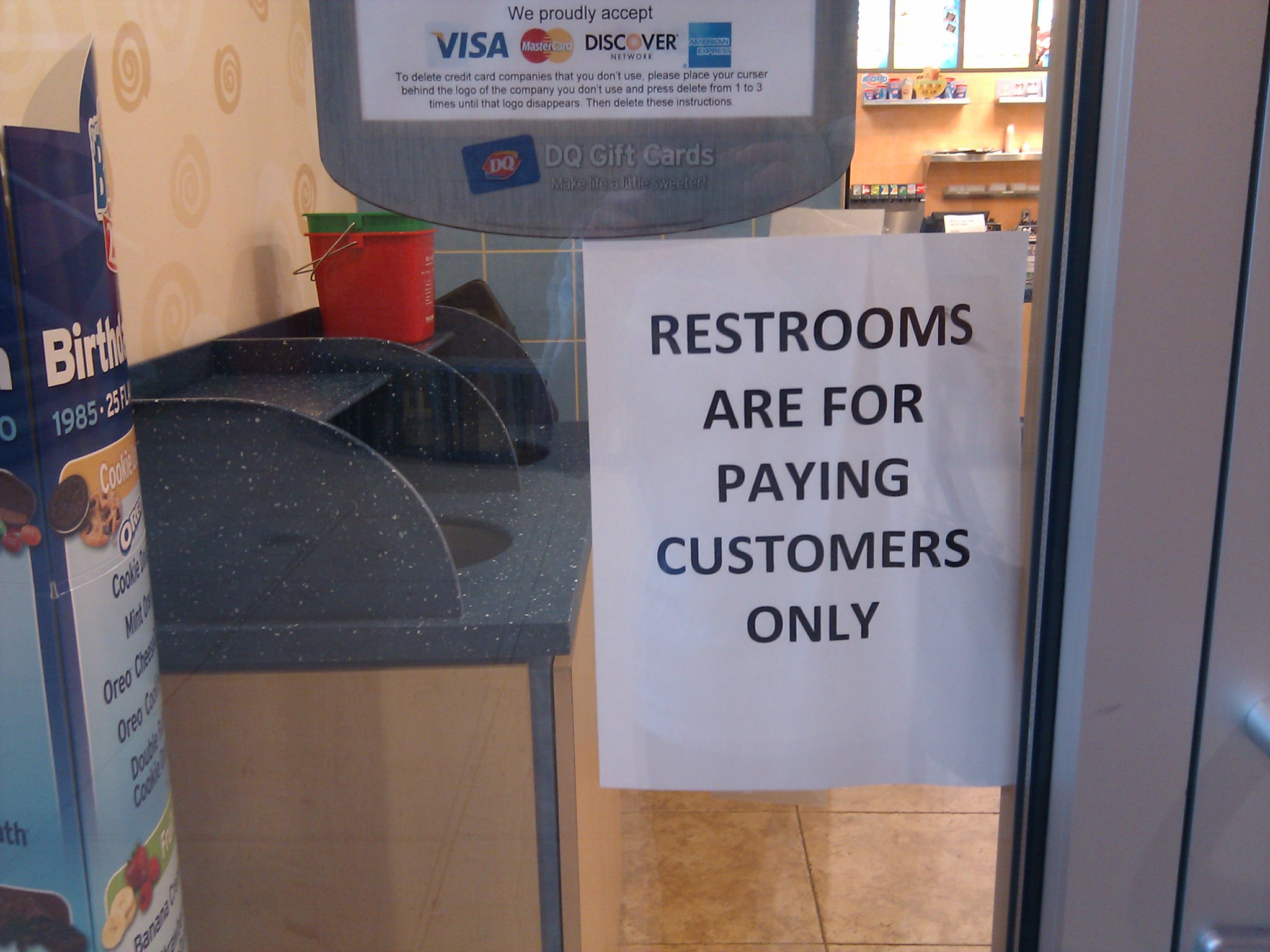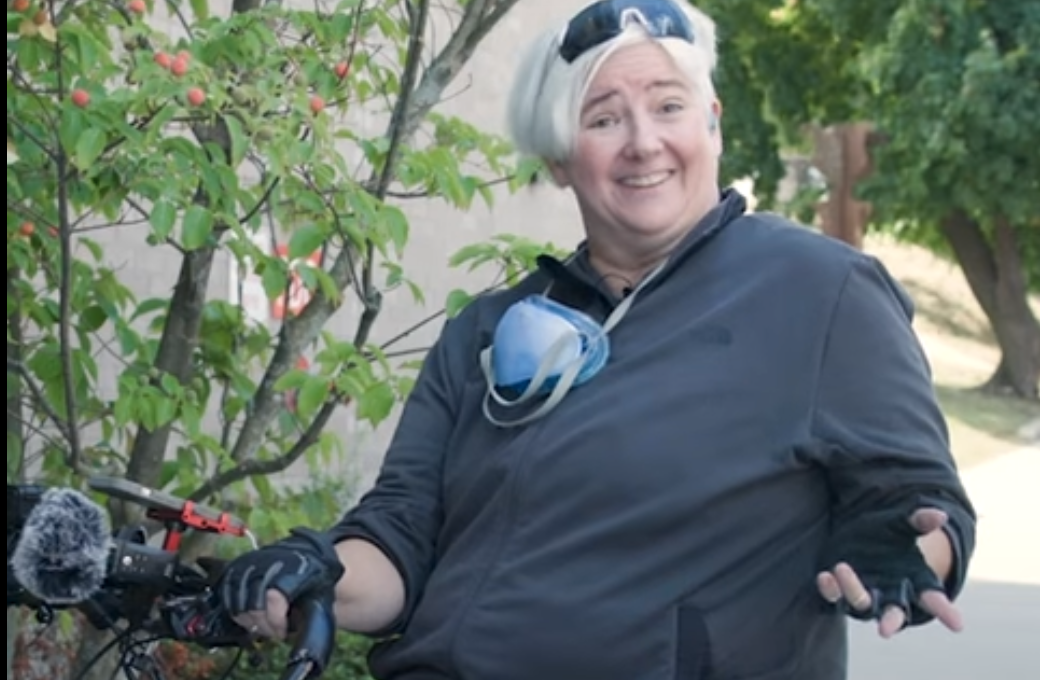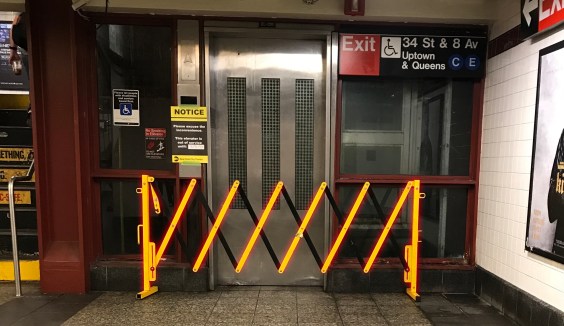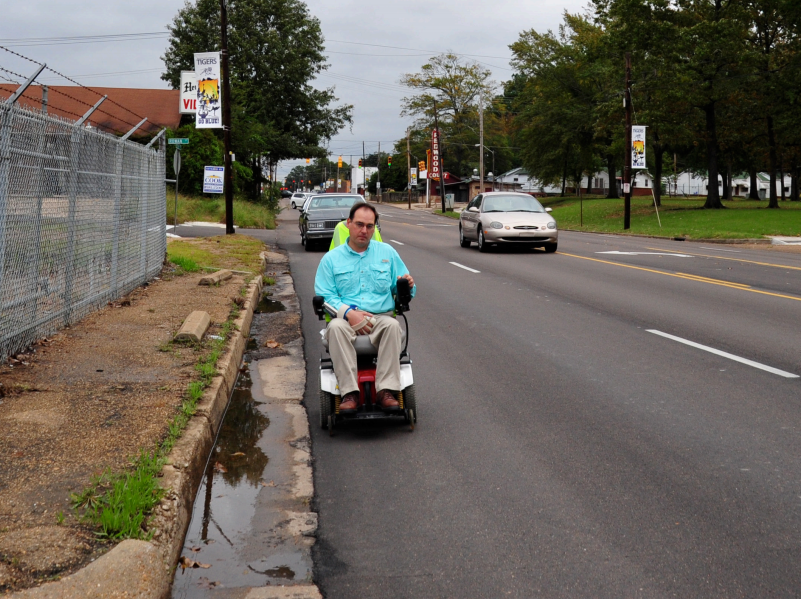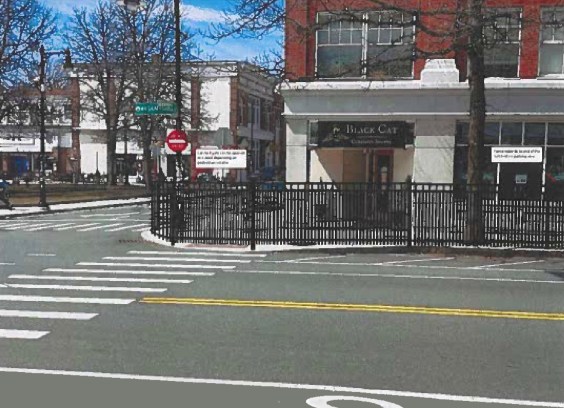Accessibility
Friday Video: How Public Transportation Fails ‘Fat’ People
Take a deep dive on the importance of size-inclusive transit, and what activists in Brussels are doing to get it.
Black Transportation Justice: A Closer Look at Intersectional Labor Movements
Throughout the 20th century, Black civil rights leaders used transportation as a means to challenge white supremacy, aiding movements for organized labor and feminism along the way.
Cities Have One Less Excuse Not To Install Accessible Pedestrian Signals
America has new accessibility guidelines for public streets, but that doesn't mean that they're being implemented everywhere. A new cheap, fast signal technology hopes to get them off the shelf.
This App Could Make D.C. One of the Most Accessible Transit Networks In the World
A new app makes it possible for people with visual impairments to navigate the deepest reaches of D.C.'s underground transit network – and it could have benefits for other riders, too.
Op-Ed: How Transit Agencies Are Tackling America’s Public Bathroom Crisis
Lack of public restrooms can be a barrier to using transit — and a devastating problem for those who have no choice but to ride. This company is trying to solve the problem.
Starbucks is No Longer ‘America’s Bathroom.’ It Never Should Have Been.
Providing public restrooms used to be a basic public responsibility. In the U.S., they're an increasingly rare commodity.
Friday Video: Commute with Dylan in Boston
"E-bikes are a thing," says one disabled Bostonian, as they show off how easy it is to get around without a car if a city provides the right infrastructure.
Subway Elevators are Not Just a Nice Lift, But a Basic Civil Right
Accessibility is a must-have as cities compete to attract visitors and retain residents.
On a Roll: Feds Inch Closer to Finally Achieving Key Goal of Americans With Disabilities Act
The 34-year-old Americans With Disabilities Act may soon — finally — give pedestrians, people in wheelchairs or parents pushing strollers true equality in the public right of way.
Downtown Salem, Mass. Gets Lots of Foot Traffic; Its Cops Want to Fence It In
Last month, the Salem Police Department announced a controversial new plan to manage the dense crowds of pedestrians that visit the Witch City every autumn.
